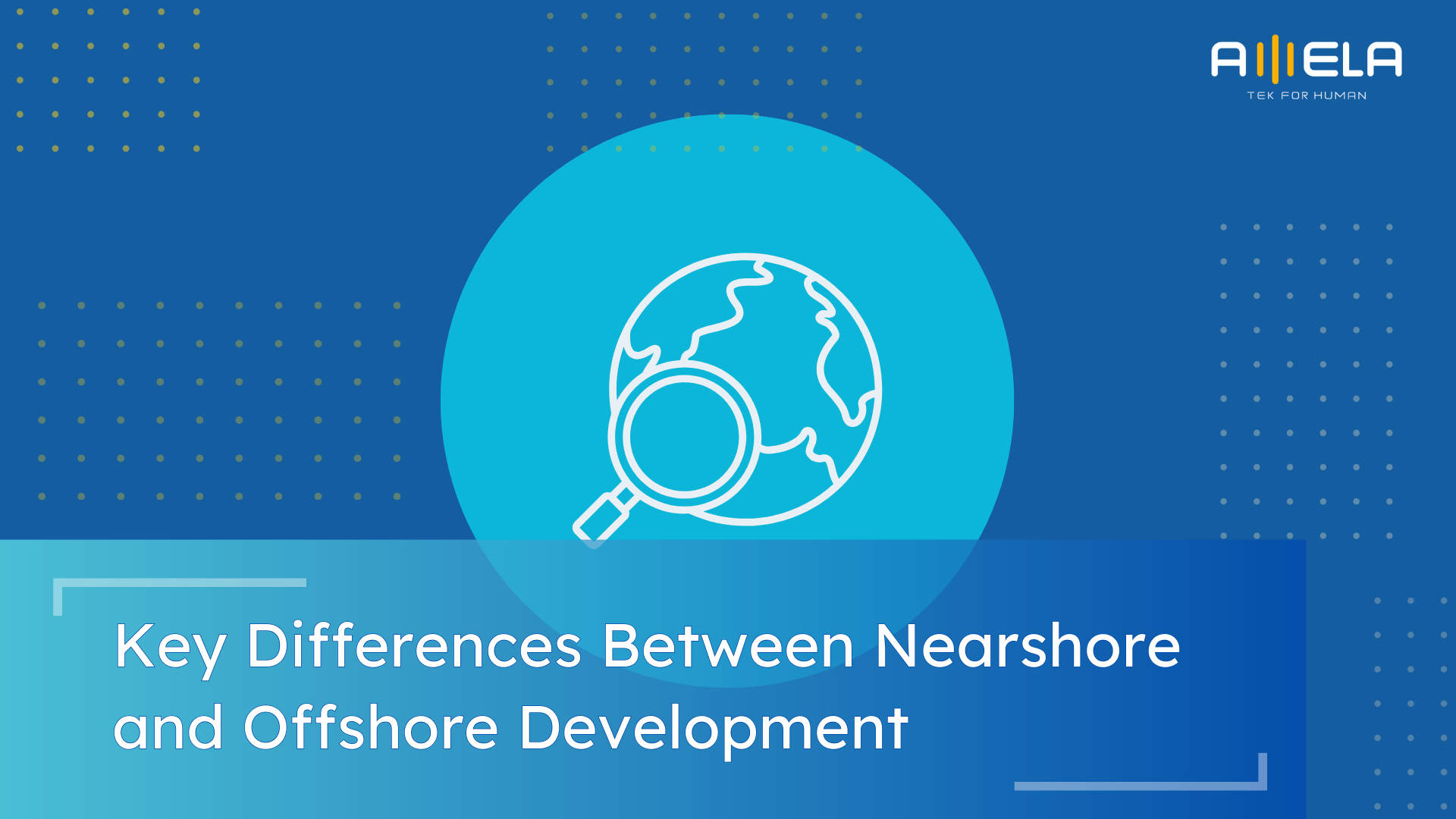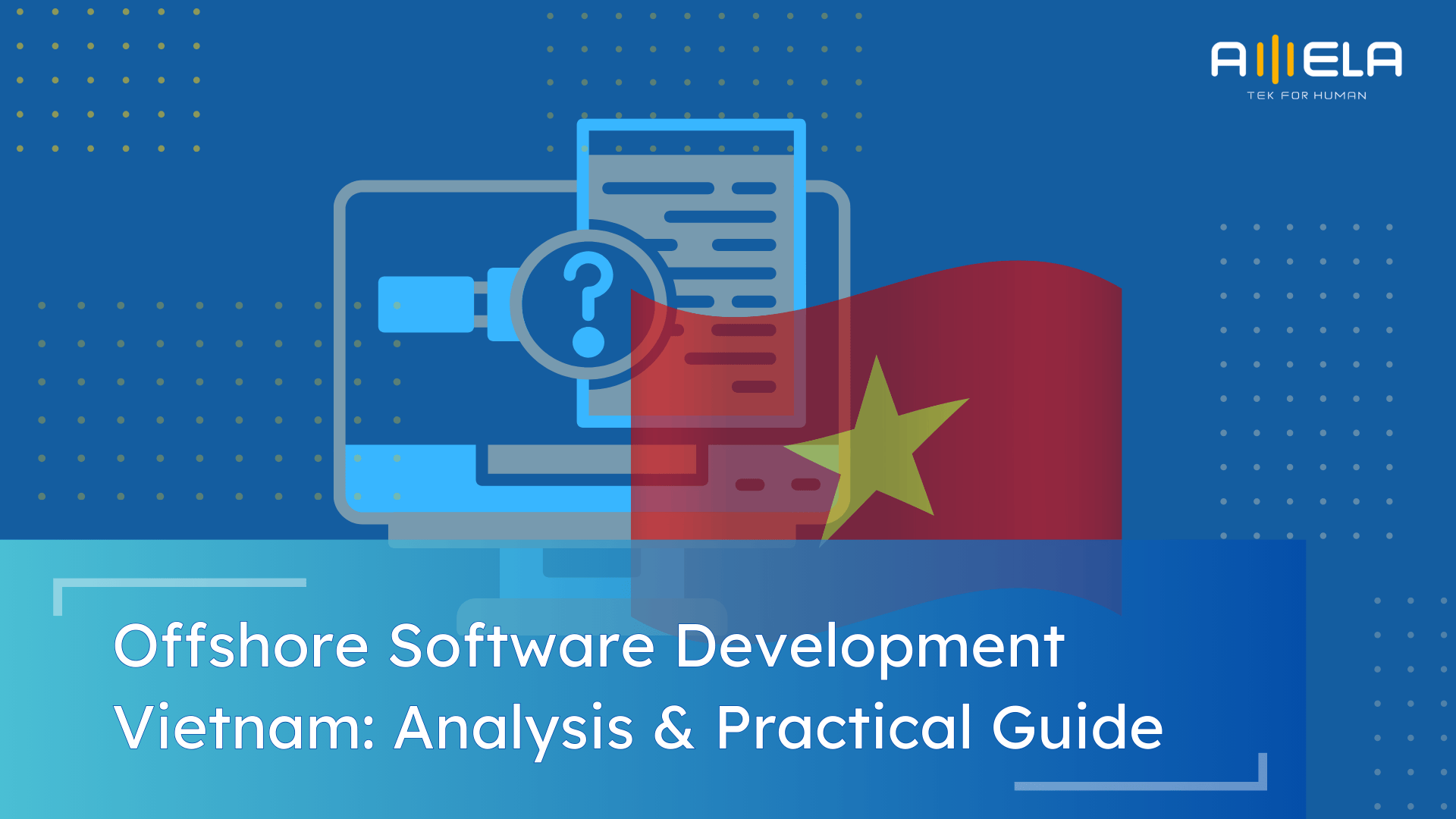Table of Contents
Singapore’s gaming industry has rapidly evolved into one of Asia’s most advanced development ecosystems. With the government’s strong digital innovation support and a tech-savvy workforce, the market is now home to both AAA powerhouses and rising indie studios. According to Statista, the Singapore games market is expected to surpass US $450 million by 2026, while the number of active gamers continues to climb past 2.5 million.
From global publishers like Ubisoft and Bandai Namco to emerging creative teams and regional outsourcing partners, Singapore has become a magnet for talent, investment, and innovation in gaming.
In this blog, we’ll explore the Top 10 Game Development Companies in Singapore — breaking down who they are, what they do best, and how you can choose the right partner for your next hit title. Whether you’re a publisher, investor, or startup founder, this guide will help you navigate Singapore’s fast-moving game development landscape with clarity and confidence.
Top 10 Game Development Companies in Singapore
Here are top 10 Singapore’s game development companies with key facts (location, founded, employees) and our expert take on their strengths.
How we ranked: delivery track record, AAA/AA output, art/engineering depth, platform coverage, and hiring scale in Singapore—plus recent momentum and fit for co-dev or outsourcing.
Ubisoft Singapore
Ubisoft Singapore is Southeast Asia’s largest AAA studio, a long-time co-dev pillar on Assassin’s Creed and the lead on Skull and Bones (2024). The team’s hallmark is complex systems—especially naval gameplay, water tech, and large open-world production. For publishers needing battle-tested AAA pipelines, they’re a no-nonsense choice.
- Location: 1 Fusionopolis Walk, Solaris, one-north, Singapore
- Founded: 2008
- Employees: ~450+ developers in SG (studio expanded space in 2023; publicly listed at 350 in 2018)
- Parent: Ubisoft
Strengths we see
- AAA scale & tooling: Mature pipelines for multi-studio coordination, feature ownership, and live-ops integration.
- Specialization: Naval/water simulation, traversal, and world content integration.
- Talent funnel: Close ties to local universities (e.g., DigiPen SG) help sustain senior+junior blends.
Best for
- Large open-world co-dev, systems design, and feature pods that must integrate across global Ubisoft pipelines.
AMELA Technology
Although not headquartered in Singapore, AMELA Technology has become a go-to development partner for Singaporean studios seeking cost-efficient yet high-quality game production. With experience supporting game development projects for AR/VR, mobile, and web-based games, AMELA combines offshore affordability with the transparency and control of an in-house team.
- Location: Hanoi, Vietnam
- Founded: 2019
- Employees: 250+ in-house engineers, 10,000+ partner network across APAC
- Model: Full-cycle software & game development, staff augmentation, and tech co-development
AMELA acts as a long-term extension of your tech team in Vietnam, sharing sprint boards, documentation, and QA workflows. It’s that “same timezone, same vibe” cooperation model that Singapore clients appreciate.
Strengths
- Competitive pricing: Up to 40% lower cost than Singapore without compromising quality.
- Cross-platform expertise: Unity, Unreal Engine, Phaser, and WebGL.
- Flexible models: ODC (Offshore Development Center), fixed-scope projects, or dedicated dev teams.
- Proven Singapore collaboration: Multiple co-dev projects with local studios in gaming and simulation fields.
Best for
- Singapore companies looking to scale production capacity, maintain agile control, and reduce burn rate while keeping creative ownership.
From adding key talent to building entire games, AMELA Technology helps Singapore studios grow smarter and faster.
Virtuos (HQ Singapore)
Virtuos is one of the largest co-dev/porting IT vendors in Singapore, shipping on console/PC/mobile with deep art and engineering benches. Recent industry turbulence included a ~7% workforce reduction, but the company remains a go-to for remasters, ports, and content production at scale. Straight-up: if you need velocity plus coverage across time zones, they’re built for it.
- Location: Headquarters in Singapore; 25+ studios worldwide
- Founded: 2004
- Employees: ~4,000 global (2025)
- Model: External development (co-dev, ports, art/tech)
Strengths we see
- Throughput at quality: Parallel teams for art, engineering, and tech QA.
- Platform breadth: Modern consoles, PC, and handheld/legacy ports.
- Known for big-name collabs: Support on top franchises; predictable vendor management.
Best for
- Ports/remasters, large content drops, and art/tech co-dev where schedule reliability is critical.
Bandai Namco Studios Singapore
The Singapore division is Bandai Namco’s head game development branch in Asia, contributing to flagship franchises (e.g., Tekken, Ace Combat) with strong art/tech capabilities and cross-Japan collaboration muscle. If you need Japanese production rigor with regional execution, this studio sits in the sweet spot.
- Location: 21 Media Circle, #09-01/03, Infinite Studios, Singapore 138562
- Founded (SG division): 2013
- Employees: Part of Bandai Namco Studios’ ~1,057 (global, 2025)
- Parent: Bandai Namco Entertainment
Strengths we see
- Japan-grade pipelines: Asset fidelity, animation, camera/combat polish.
- Cross-studio coordination: Smooth workflows with Tokyo/Malaysia for milestone-driven delivery.
- Franchise stewardship: Culture of protecting IP tone and gameplay identity.
Best for
- High-fidelity art/animation and gameplay feature pods on fighting/flight/action series with exacting bar for polish.
IGG (IGG Inc.)
IGG is a mobile powerhouse with massive F2P operations, live-ops discipline, and UA/monetization sophistication—an ideal reference for games targeting global scale with long LTV curves. Their HQ in Singapore centralizes decision-making for product, analytics, and growth.
- Location (HQ): Singapore
- Founded: 2006 (originating in China; HQ moved to SG)
- Employees: ~2,142 (2025)
- Model: Developer & publisher; mobile-first (e.g., Lords Mobile)
Strengths we see
- Live-ops & economy: Event cadence, offers, segmentation, and payer funnels.
- Global ops: Multilingual support and data-driven retention tactics.
- Portfolio learnings: Years of mid-core economy design and clan/guild social loops.
Best for
- Market entries seeking F2P economy consultation, live-ops strategy, and global launch playbooks.
Mighty Bear Games
Mighty Bear is one of Singapore’s most seasoned indie-to-mid studios: agile, design-forward, and comfortable with new platforms and community-driven products. Expect practical prototyping, quick iteration, and modern production habits from ex-AAA leadership.
- Location: Singapore (Block 71 / one-north area historically)
- Founded: 2016
- Employees: ~11–50 (indie-to-mid scale)
Strengths we see
- Fast iteration: Small squads, short feedback loops, strong product sense.
- Community savvy: Player-first roadmaps and transparent comms.
- Platform flexibility: Comfortable jumping across mobile/PC with contemporary stacks.
Best for
- Rapid prototypes, vertical slices, or stylized multiplayer concepts that need speed without bloated overhead.
Garena (Sea Ltd.)
Garena isn’t just a publisher — it’s one of Southeast Asia’s defining gaming brands, best known for Free Fire, a battle royale hit with hundreds of millions of global downloads. Beyond development, Garena sets the standard in regional esports, community building, and live event operations.
- Location: 1 Fusionopolis Place, Singapore
- Founded: 2009
- Employees: ~5,000 (Sea Group global)
- Model: Game developer, publisher, and esports operator
Strengths we see
- Live-ops & publishing dominance: End-to-end lifecycle control from development to esports.
- Strong monetization insight: Deep understanding of SEA gamer behavior.
- Robust infrastructure: In-house analytics and player engagement systems at enterprise scale.
Best for
- Strategic publishing partnerships and market expansion across SEA with proven monetization frameworks.
The Gentlebros
If you’ve played Cat Quest, you’ve already seen what makes The Gentlebros special — tight gameplay, charming art, and global appeal from a small team. They represent Singapore’s thriving indie scene, showing how creativity and storytelling can punch way above budget.
- Location: Singapore
- Founded: 2014
- Employees: <20
- Flagship Titles: Cat Quest, Cat Quest II
Strengths we see (AMELA review)
- Strong IP development: Proven ability to turn original ideas into commercially successful franchises.
- Efficient production: Streamlined pipelines perfect for mid-core action RPGs.
- Community connection: Loyal fanbase, strong marketing presence across Steam and Switch.
Best for
- Game development companies in Singapore, studios or investors looking to learn from successful indie IP creation and cross-platform distribution.
Riot Games Singapore
Riot’s Singapore studio supports development for League of Legends, VALORANT, and other upcoming titles. The team focuses on engineering, QA, and art production, and collaborates closely with Riot’s LA and Shanghai hubs. Their local presence shows Singapore’s importance in Riot’s global dev mesh.
- Location: 1 Fusionopolis Place, Singapore
- Founded: 2016 (SG studio opened)
- Employees: 100–200 in Singapore
- Parent: Riot Games (subsidiary of Tencent)
Strengths we see
- High operational standards: Strong cross-region pipelines and code integration processes.
- Diversity of roles: From concept art to gameplay programming.
- Cultural fit: Developer-first, values collaboration and quality of life — not just crunch time.
Best for
- Developers seeking insight into AAA multiplayer live-ops and scalable backend systems.
Pixel Mechanics
Pixel Mechanics bridges game development, digital marketing, and education technology. They design gamified platforms and serious games for brands, schools, and government projects — bringing gameplay thinking to non-traditional sectors.
- Location: Singapore
- Founded: 2016
- Employees: ~50
- Model: Full-service digital studio (games, gamified experiences, and interactive media)
Strengths:
- Gamification experts: Turning learning, training, or marketing goals into engaging interactive apps.
- Multi-sector experience: Government, healthcare, retail, and education projects.
- Design-driven: Clean UX/UI philosophy and solid execution.
Best for
- Businesses exploring serious games, gamified learning, or brand engagement projects.
Summary Table — Top Game Development Companies in Singapore
| Rank | Company | Location | Founded | Employees | Key Strengths |
| 1 | Ubisoft Singapore | Singapore | 2008 | 450+ | AAA co-dev, open-world systems |
| 2 | Virtuos | Singapore HQ | 2004 | 4,000+ | Ports, art & tech outsourcing |
| 3 | Bandai Namco Studios SG | Singapore | 2013 | 100+ | Japan-style quality, franchise IP |
| 4 | IGG | Singapore HQ | 2006 | 2,000+ | Mobile F2P & live-ops |
| 5 | Mighty Bear Games | Singapore | 2016 | <50 | Fast prototyping, creative indie |
| 6 | AMELA Technology | Vietnam | 2019 | 250+ | Outsourcing, cost-efficient full-cycle dev |
| 7 | Garena | Singapore | 2009 | 5,000 | F2P publishing & esports |
| 8 | Riot Games SG | Singapore | 2016 | 100–200 | AAA multiplayer live-ops |
| 9 | The Gentlebros | Singapore | 2014 | <20 | Indie IP creation |
| 10 | Pixel Mechanics | Singapore | 2016 | ~50 | Gamification, serious games |
Whether you’re a publisher planning your next AAA co-dev or an indie looking to stretch your budget, these top studios — both in Singapore and nearby Vietnam — offer the talent and flexibility to make your next big hit a reality.
How to Choose the Right Game Developer in Singapore
Finding the right studio or game development outsourcing partner isn’t just about hiring coders — it’s about building a creative and technical alliance that can turn your idea into a profitable, player-loved product.
Below is a practical, experience-backed checklist drawn from AMELA Technology’s years working with both AAA studios and startups across Asia.
1) Assess Their Technical Stack and Specialization
Match the developer’s core engine expertise and genre experience with your project’s scope.
Singapore’s top studios often specialize deeply — Ubisoft and Bandai Namco in console/AAA, IGG in mobile live-ops, and Mighty Bear in stylized multiplayer. If you’re outsourcing, Vietnamese partners like AMELA can cover full-cycle Unity, Unreal, and WebGL pipelines at a fraction of the cost.
Checklist for evaluation:
- Do they master your chosen engine (Unity, Unreal, Godot)?
- Can they handle multiplayer backends or cross-platform builds?
- What’s their QA and optimization workflow?
Always ask for a recent tech breakdown — not just a portfolio. A studio that can explain its build pipelines and CI/CD setup shows maturity and reliability.
2) Review Portfolio Relevance
Not all “cool” game development companies in Singapore are the right fit. Look for portfolio pieces that match your target market and genre.
For example:
- If you’re building a casual mobile title, a studio with MOBA or FPS history might not bring the right UX flow.
- If your game has anime-style art, check if they’ve handled similar shader complexity, rigging, or 2D-3D hybrid rendering.
AMELA tip: In past collaborations with Singapore clients, teams that aligned early on art direction and core gameplay loop reduced total rework time by over 30%. That’s money saved and sanity kept.
3) Prioritize Communication and Workflow Transparency
Bold takeaway: A strong partner doesn’t just deliver — they co-own your roadmap.
Whether your developer is based in Singapore or offshore (like Vietnam), real-time communication is the lifeline. Ask how they manage daily updates, sprint reviews, and version control.
Best practices:
- Use shared tools (Jira, Notion, GitHub, Trello).
- Set up weekly sprint reviews with clear KPIs.
- Ensure bilingual or English-fluent PMs to avoid delays.
At AMELA, we often say: “The best projects don’t run on code — they run on trust.” And that trust is built in every check-in, every progress demo, every Slack message that says, ‘We’re on it.’
4) Consider Scalability and Resource Stability
The game industry’s pace is wild — one minute you’re in alpha, the next you need 10 new animators. Choose a partner who can scale capacity quickly without losing quality.
Questions to ask:
- Can they expand the team mid-project?
- Do they have access to backup talent or partner networks?
- How do they ensure code and asset handover if the scope changes?
That’s where regional collaboration shines. Studios like AMELA in Vietnam maintain a 10,000+ developer network to help Singapore companies plug in specialists (3D artists, backend devs, gameplay engineers) in days, not months.
5) Compare Pricing Models and Ownership Terms
Bold takeaway: The cheapest quote isn’t always the smartest deal — focus on value per sprint, not hourly rate.
Look for clarity on:
- IP ownership (you should always own it).
- Source code delivery schedule.
- Milestone-based payments instead of lump-sum contracts.
Pro insight: For mid-sized studios, hybrid models (core team in Singapore + extended dev team in Vietnam) deliver up to 40% cost reduction while keeping creative direction local. It’s the best of both worlds — local vision, offshore execution.
6) Check Reviews, References, and Past Partnerships
A solid developer isn’t shy about sharing client feedback or project outcomes.
Do this:
- Ask for client contacts (publishers, previous co-devs).
- Review testimonials on platforms like Clutch or LinkedIn.
- Look at post-launch performance metrics if available (downloads, retention, ratings).
Good studios are transparent — they’ll even share lessons from failed projects, not just polished wins. That honesty says more about reliability than any glossy pitch deck.
Choosing a game developer in Singapore isn’t about finding the biggest or cheapest — it’s about finding one who understands your vision, communicates clearly, and scales smart.
FAQs
How much does it cost to develop a game in Singapore?
In short: Web app development cost in Singapore runs between US$30,000 and US$300,000+, depending on complexity, platform, and studio type.
- Indie 2D mobile game: ~US$30,000–70,000
- 3D mobile or mid-core title: ~US$80,000–150,000
- PC/console production: starts around US$200,000–500,000+
Singapore’s labor cost is higher than Vietnam or Malaysia, largely due to local salaries and operating expenses. That’s why many studios co-develop with Vietnamese partners like AMELA Technology in game development projects, achieving up to 40% cost savings while maintaining production control and creative direction.
How to start collaborating with a game development company in Singapore or Vietnam?
Start simple:
- Define your core game concept, target platform, and audience.
- Prepare a brief or GDD (Game Design Document) — even a rough one.
- Reach out for discovery calls or pilot projects (many offer free consultations).
At AMELA Technology, we usually begin with a 1-week discovery sprint to define your tech stack, milestones, and delivery scope before coding starts — helping teams move from idea to prototype faster and smarter.
What’s the future of game development in Singapore?
The future points toward cross-border collaboration, AI-assisted production, and gamified tech solutions. We’re seeing steady growth in:
- AR/VR training & serious games for enterprises
- AI-driven content pipelines (procedural world generation, automated testing)
- Hybrid offshore models that link Singapore studios with partners like AMELA Technology in Vietnam for scalable, cost-effective delivery
Final Thoughts
Singapore’s position as one of Asia’s leading game development hubs continues to strengthen — thanks to its innovative ecosystem, strong government backing, and globally connected talent pool. The top game development companies in Singapore aren’t just producing great titles; they’re setting new standards in creativity, technology, and cross-border collaboration.
However, with increasing production costs and talent shortages, many studios are now partnering with offshore teams to stay competitive. Collaborating with experienced partners like AMELA Technology in Vietnam allows game developers and publishers to expand capacity, reduce costs by up to 40%, and maintain full creative control — without compromising quality or delivery speed.
Reach out to AMELA Technology today — and let’s shape the future of gaming beyond borders.

 Apr 15, 2024
Apr 15, 2024 

